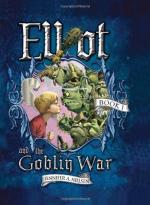An industrial crisis was upon the country and everyone was expectant, and wondering how it would all end. Keir Hardie’s preaching of the working class gospel was a big factor in Robert’s development and the latter was soon in demand for platform lectures, stirring up the workers and pleading with them to organize, and teaching them economics through historical allusion and industrial evolution until he soon became recognized as one of the coming forces in the working-class movement. He was as yet very impulsive, and while such a trait had generally a powerful appeal on the average audience of the working class type, it often put him into somewhat compromising situations, when dealing with the more sober and serious work of the organization. Still he was showing up well, and only time and experience were needed to cure his defects. So the year ended, and the cloud grew more and more threatening.
January brought the crisis to a head, and the Government, recognizing that nothing could avert a strike and as the foreign situation was passing through a critical period, requested that a conference should be called in London, and invited the miners and the mine-owners to come together so that the Prime Minister and other statesmen could be present to try and adjust the grievance. It was a historic gathering and one that marked an epoch in the history of the industrial movement.
Delegates were present from almost every Miners’ Lodge in Great Britain, while the owners were also fully represented.
The Prime Minister acted as chairman of the gathering and he was supported on the platform by other members of the Government, while Smillie and other well-known leaders represented the men and a number of the owners represented the Coal Masters’ Association.
The platform party was an imposing one. Men of big reputation were there, and Robert felt himself wondering, as he looked at them, how ordinary they looked after all, and he began to speculate as to the qualities they possessed which had given them such importance.
“That’s the Chancellor o’ the Exchequer,” said one of the delegates to Robert, pointing out the individual named. “He’s a wee eatin’-an’-spued’ lookin’ thing when you see him sittin’ there, isn’t he?”
“Ay,” answered Robert casually, as he surveyed the group. “I was just wondering how it was they had a’ gained such reputations. In appearance they are not much to boast about.”
“Ach, they’re jist a lot o’ oily tongued wheedlers,” was the reply, “an’ that wee ferrit-eyed yin is the worst o’ them a’. Just wait till he begins to speak, an’ you’ll think he’s a showman. He can fairly pit on the butter, an’ he’ll send us a’ away hame in the belief that we’re the finest set o’ men he ever met, an’ mak’ us feel that if we decide to do anything against what he recommends, the hale country will gang to ruin.”
“Oh,” said Robert, as his fellow delegate paused, “I’ve read aboot him.”




